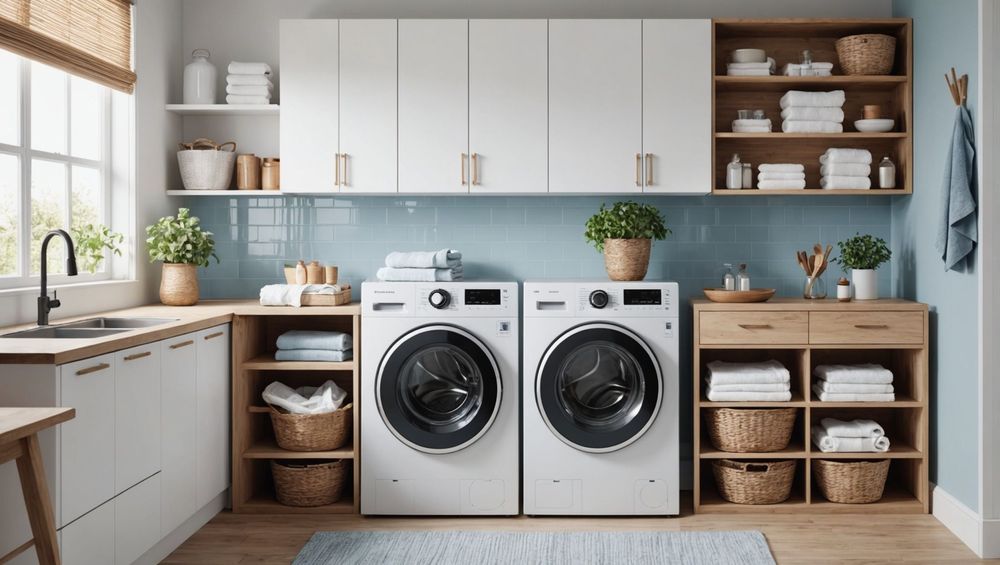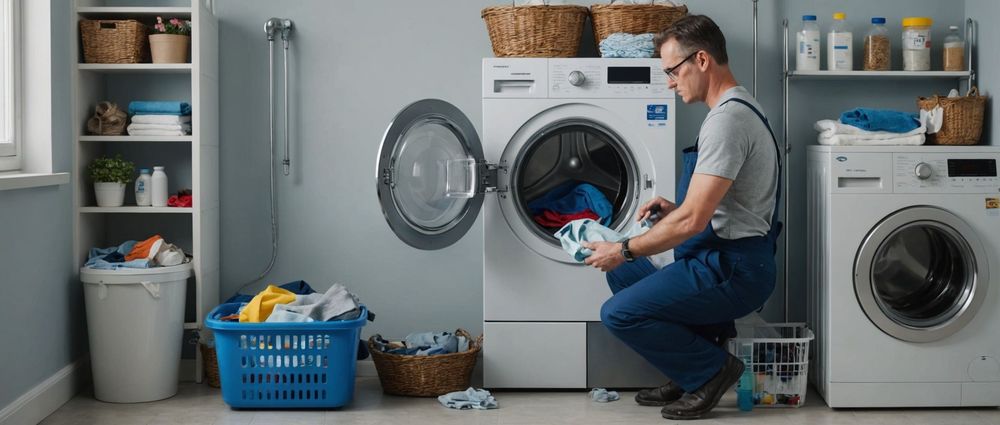Deciding when to buy a new washing machine can be daunting, especially with so many options available. However, several signs indicate that it’s time for an upgrade. If your current washing machine frequently malfunctions, takes longer to complete cycles, or has significantly increased your energy bills, it may be time to consider a new purchase. In this article, we will explore tells that suggest it’s time for a washing machine replacement, ensuring you can make an informed decision.
Signs Your Washing Machine Might Be Failing

Your washing machine is an essential appliance, making it crucial to be aware of signs that indicate it might need replacing. Here are some common indicators of a failing washing machine:
- Unusual Noises: If you hear grinding, banging, or clanking sounds, it could signal that internal components are breaking or misaligned.
- Leaking Water: Puddles of water around the washer can indicate a malfunctioning hose or seal that may require expensive repairs.
- Longer Wash Cycles: When your washer takes unusually long to finish even the simplest cycles, it could signify a failing timer or motor.
- Excessive Vibration: A wobbling or excessively vibrating machine can cause further damage and may indicate worn-out parts.
- Failure to Spin: If your machine is no longer properly spinning dry clothes, this can lead to damp laundry and increased drying times.
Increased Energy and Water Bills

Another critical aspect to consider is the efficiency of your washing machine. Older machines tend to consume more water and energy than newer, high-efficiency models. If you’ve noticed a spike in your energy or water bills, it may be time to evaluate your current appliance. Investing in an Energy Star-rated washing machine can significantly reduce water and energy consumption. Additionally, consider the following:
- Age of the Machine: If your washer is over 10 years old, it is likely less efficient than new models.
- Frequency of Repairs: If you are fixing your washer more than once a year, repairs could be costing you more than buying a new unit.
- Washing Performance: Dirty or unsatisfactory cleaning results can indicate that your washer is losing effectiveness.
New Technology and Features
Technology is evolving rapidly, and modern washing machines boast a range of features that improve usability and performance. Features like smart technology, advanced rinse cycles, and specialized washing settings for different fabrics can enhance your laundry experience. If your current model lacks these features, here’s why considering a replacement may be beneficial:
- Smart Connectivity: Many washing machines can now connect via Wi-Fi, allowing for remote control and monitoring.
- Custom Settings: New models often come with settings tailored for various fabrics, ensuring optimal care.
- Higher Efficiency Ratings: Investing in a new machine can provide significant savings on water and energy costs.
Consider the Emotional Impact
It’s not just about functionality; think about how your washing machine impacts your daily life. If constant repairs and inefficiencies turn your laundry into a stress-inducing chore, it may be time for a change. Assess how your current machine affects your routine:
- Time Lost: Frequent breakdowns can lead to time wasted on laundry, affecting your busy schedule.
- Frustration Levels: If you find yourself frustrated each time you do laundry, a new machine could bring peace of mind.
- Family Needs: With a growing family, upgrading to a larger-capacity machine could alleviate laundry burdens.
Financial Considerations
On the flip side, consider your budget before purchasing a new washing machine. While it may seem attractive to hold on to your old washer, the long-term costs of continued repairs and inefficiencies may add up quickly. Assess your financial situation by considering:
- Repair Costs: Analyze your current machine’s repair expenses against the cost of a new unit over time.
- Financing Options: Many retailers offer financing or payment plans for purchasing new appliances.
- Long-term Savings: A newer machine may save money through energy and water efficiency, making it a worthwhile initial investment.
Conclusion
In conclusion, deciding to buy a new washing machine involves assessing various factors, including appliance efficiency, costs, features, and emotional impact. By recognizing the signs of a failing washer and considering modern advancements, you are better equipped to make an informed decision. Whether it’s the convenience of smart technology or the financial savings of a high-efficiency unit, investing in a new washing machine can enhance both your daily routine and your home’s efficiency.
FAQs
1. How long do washing machines typically last?
Most washing machines last around 10 to 15 years, but this can vary based on usage and maintenance.
2. Can large appliances be repaired instead of replaced?
Yes, many washing machines can be repaired, but if repair costs are exceeding the cost of a new unit, replacement may be wiser.
3. What are the benefits of an energy-efficient washing machine?
Energy-efficient washing machines can significantly reduce your water and electricity bills and often qualify for rebates.
4. What should I look for when buying a new washing machine?
Look for capacity, energy efficiency, features, warranty, and reviews from other consumers to ensure you choose wisely.
5. How can I maintain my washing machine to increase its lifespan?
Regular cleaning, ensuring proper loading, and performing routine checks for leaks can help maintain your washer for longer service.



